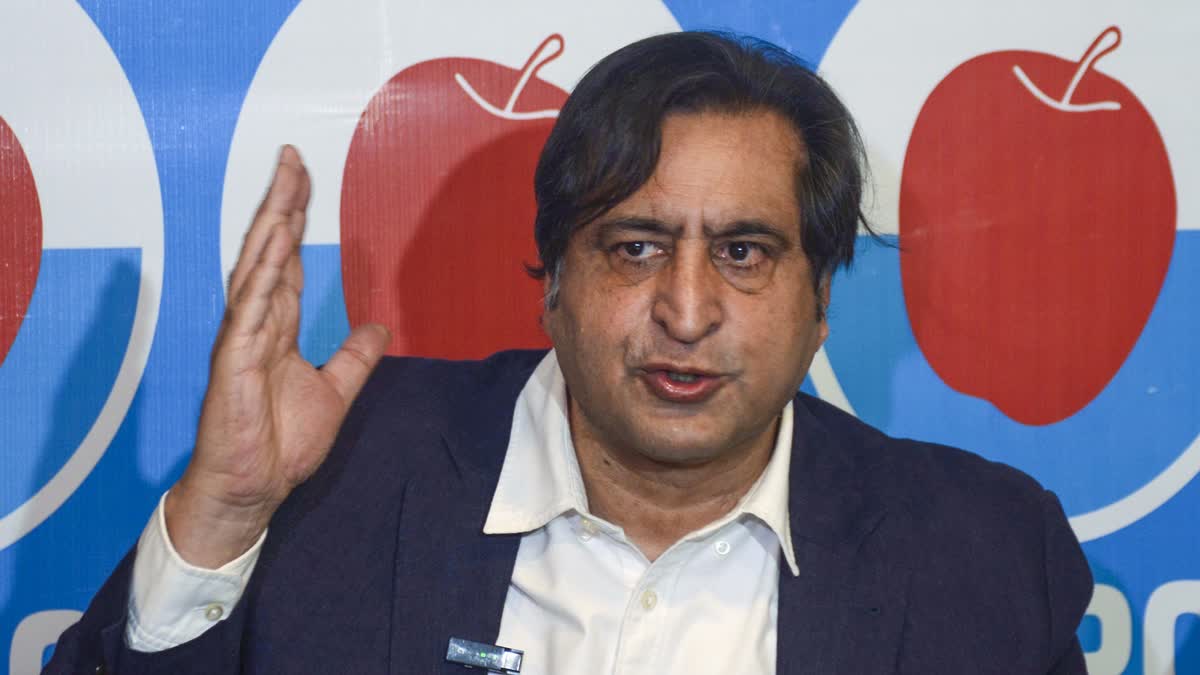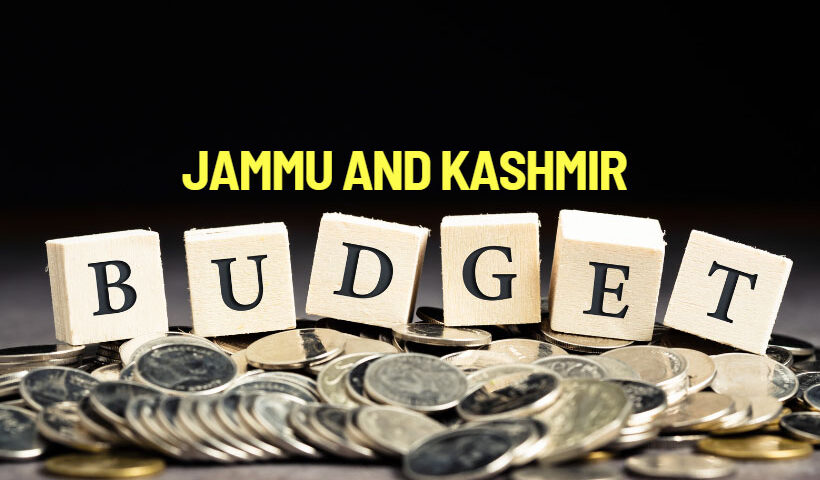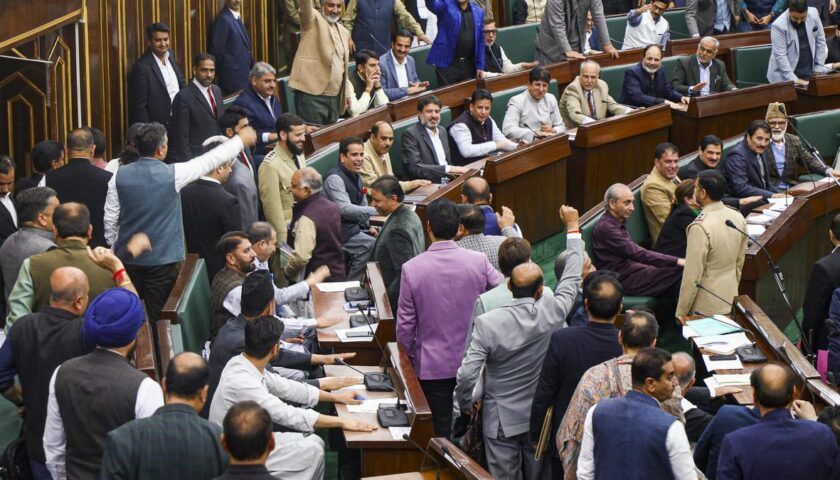On October 14, 2025, Sajad Gani Lone, President of the People’s Conference (PC) and MLA from Handwara, made a striking political announcement. The PC will abstain from voting in the upcoming Rajya Sabha elections in Jammu & Kashmir. Lone emphatically declared: “I will never vote for the National Conference (NC)”, and underlined that, in his view, the NC and BJP have become indistinguishable in how they conduct politics.
This stance adds a new dimension to the already heated political atmosphere in J&K, where regional parties, national parties, and alliances are constantly recalibrating their positions.
In this article, we explore:
-
What exactly Sajad Lone has said and what he means.
-
The factual background — numbers, seats, stakes.
-
The responses — from Omar Abdullah, NC, BJP, others.
-
The likely political implications.
-
How this fits deeper into the politics of Jammu & Kashmir.
What Sajad Gani Lone Announced: Key Statements & Claims
From ground reports and multiple media sources, here are the main points of Lone’s announcement and accusations:
-
Abstention from the Rajya Sabha vote: PC will not vote in the upcoming Rajya Sabha elections (set for October 24, 2025).
-
Never vote for NC; will also not support BJP: He said he would “never vote for the National Conference candidate”, and would similarly refuse to vote for BJP. He described both parties as “indistinguishable” in their behavior and political alignment.
-
Criticism of Omar Abdullah’s government: Lone called the current NC-led government under Omar Abdullah “the most failed administration in the history of Jammu & Kashmir.” He accused Omar of being incapable of administration and yet pretending otherwise.
-
Accusation of denying Congress a Rajya Sabha seat at BJP’s behest: One of Lone’s central claims is that Omar Abdullah and NC denied the Congress a seat for Rajya Sabha elections to benefit BJP — either by refusing Congress a “safe” seat or by offering what the Congress considered “unsafe” seats.
-
Refusal to be labelled or told whom to vote for: Lone rejected being told who is an ally or who is not, especially in the context of Omar Abdullah’s statements that non-supporters of NC are de facto helping BJP. Lone said NC does not have the moral authority to label others.
The Factual and Political Context: What’s at Stake
To understand the significance of Lone’s statement, one must look at the arithmetic of the Rajya Sabha seats, the existing party strengths, alliances, and what abstention could mean.
Rajya Sabha Seats & Assembly Strength in J&K
-
There are four vacant Rajya Sabha seats from Jammu & Kashmir, and the election is scheduled for October 24, 2025.
-
The NC has fielded four candidates.
-
The BJP has fielded three candidates.
Numbers in the J&K Legislative Assembly
-
Total strength of the J&K Assembly is reported in various sources as 88 MLAs in this context (though earlier references have quoted 90, likely due to vacant seats etc.).
-
NC has support of 53 MLAs.
-
BJP has 28 MLAs.
This means, math-wise:
-
NC is well-positioned to win three of the four seats comfortably given its majority.
-
The fourth seat is where the contest is keen: if some non-BJP MLAs abstain (i.e., do not vote for NC), it could tilt the balance in favour of BJP’s candidate for that seat.
Why Congress Matters Here
-
The Congress is an ally (or at least, in alliance dynamics) but has claimed it was denied a suitable Rajya Sabha seat by NC. Lone accuses Omar Abdullah of doing this at BJP’s behest.
-
The Congress reportedly was offered Seat No. 4, described as “unsafe” by Congress leaders, which they declined. They had requested a safer seat.
Responses & Counterpoints
As in any major political issue, the announcement and accusations have elicited reactions — both defensive and critical.
Omar Abdullah & the NC’s Position
-
Omar Abdullah has said that abstention helps BJP, because any MLAs who do not vote for NC candidates effectively reduce NC’s vote‐margin, indirectly aiding BJP.
-
The NC claims to have offered a Rajya Sabha seat to Congress for a safer slot. Omar has defended that they did what they could, but says that Congress turned down offers.
BJP
-
BJP has tacitly benefited from PC’s abstention, especially for the fourth Rajya Sabha seat. Since BJP is fielding three candidates, and with numbers, the fourth seat is competitive. If enough MLAs outside BJP abstain, BJP’s candidate can gain.
Other Regional Parties / Independents
-
The fate of the fourth seat depends also on what smaller parties and independents do: PDP (3 MLAs), AIP (1 MLA), AAP (1 MLA, though reports say the AAP MLA is detained under PSA), and an independent MLA.
-
If these non-BJP MLAs vote for NC, NC might win the fourth seat; but if just a few abstain, that could hand it to BJP.
What Lone’s Accusations Imply: On Credibility, Trust & Political Strategy
Beyond arithmetic, the significance of Lone’s announcement lies deeper: what it says about alliances, trust, and political reputations in Jammu & Kashmir.
-
Alleged Proxy Behaviour: Lone repeatedly describes NC as acting like a proxy for BJP. He accuses NC of denying seats to allies (Congress) under pressure from BJP. That raises questions of autonomy, ethics, and whether public posturing (anti-BJP rhetoric) matches private alignments.
-
Credibility of Government Performance: Labeling the Omar Abdullah government as “most failed administration” is not just rhetoric — it taps into public grievances about delivery, governance, unmet promises. Lone is thereby positioning PC as an alternative voice of dissent and accountability.
-
Political Branding & Differentiation: By refusing to be aligned (either with NC or BJP), PC is trying to define itself as independent, perhaps aiming to build credibility among those dissuaded by the two larger parties’ politics. Strong refusal (“I will die but never vote for NC”) is part of political theatre but also signals strong differentiation.
-
Electoral Consequences: Because Rajya Sabha polls are indirect (votes by MLAs), such political positioning among MLAs can have immediate effect. Lone’s abstention isn’t just symbolic; it potentially changes who gets that fourth seat (where competition is narrow).
Potential Outcomes: Scenarios & Implications
Here are possible outcomes, depending on how other actors behave, and what this abstention might lead to.
| Scenario | What Happens | Implications |
|---|---|---|
| NC secures all four seats (i.e. all non-BJP MLAs vote for NC’s four candidates) | BJP fails to capture the fourth seat. NC dominance in Rajya Sabha seats from J&K is reaffirmed. PC’s abstention becomes symbolic with limited immediate effect. | NC claims mandate; BJP sees a loss; PC may gain some moral high ground among those disillusioned with NC. Congress is marginalised further. |
| BJP wins the fourth seat (if enough non-BJP MLAs abstain or vote for BJP) | The BJP secures three seats (as expected) plus the fourth — big boost. NC loses its ability to clean sweep. | Political embarrassment for NC; strengthens perception of BJP’s rise; potentially weakens alliances opposed to BJP; could set precedent for future abstentions as a strategic tool. |
| Split behaviour among smaller parties / independents | Some non-BJP MLAs vote for NC, some abstain, some stay neutral. The result could be uncertain depending on exact numbers. | Instability, last-minute horse-trading, increasing pressure on MLAs; potential for backroom deals; public may see politics as transactional. |
Fact-Checking & Cross-Verification
To ensure that the claims and counterclaims are grounded in verified information, here is what sources agree on, and where there is dispute or ambiguity.
What All Sources Agree On
-
PC has only one MLA in the J&K Assembly — Sajad Gani Lone.
-
Rajya Sabha election date is October 24, 2025, four vacant seats.
-
NC fielding four candidates; BJP three.
-
NC enjoys a majority in the current Assembly (around 53 MLAs), BJP has around 28.
-
Lone’s abstention announcement, and his refusal to vote for NC or BJP.
Points of Dispute / Ambiguity
-
The exact reason Congress was denied what it considers a “safe” seat — whether NC genuinely offered a “safe” seat or not is contested. Lone claims NC offered an unsafe seat; NC says Congress declined offers.
-
The influence of BJP: whether NC’s decisions are made visibly “at BJP’s behest”, as Lone alleges, is part political claim, part inference. There is no public official record confirming an explicit directive from BJP to NC to deny seat to Congress. Lone claims an MHA official held a meeting with Omar Abdullah and that thereafter NC acted. But whether that amounts to “orders” is not independently verified.
-
The exact number of MLAs (total strength of Assembly) is slightly different in different reports: 88 vs 90 vs some seats vacant. For the calculations around vote shares it matters which is used. Most recent reliable reporting mentions 88 MLAs.
Implications for J&K Politics & Beyond
Moving out of the immediate contest, Lone’s decision and the controversy around it signal several broader trends and possible longer-term consequences.
-
Erosion of Trust in Traditional Alliances
Many political actors in J&K depend on alliances— between NC, Congress, smaller regional parties, independents, etc. When an ally alleges betrayal (as Lone alleges NC betrayed Congress), it erodes trust. That could lead to shifting alliances, fewer stable coalitions. -
Abstention as a Political Tool
Abstaining is typically seen as either political protest, moral stance, or a tactic. If abstentions alter outcomes (as here for the fourth seat), it could encourage more parties to use abstention when dissatisfied, thereby changing the texture of indirect elections like for Rajya Sabha. -
Reinforcement of BJP’s Strategic Positioning
BJP, while not numerically strong enough to win four seats under normal circumstances, benefits if opposition parties divide their votes or abstain. Lone’s abstention may indirectly aid BJP. If this pattern is repeated, BJP could extend its influence in J&K even when not dominant in Assembly seats. -
Public Perception & Accountability
Voters watching will note promises and accusations: whether the NC indeed delivered on seat offers, whether PC acts consistently, whether political rhetoric matches actions. Performance of the Omar Abdullah government will come under stronger scrutiny given Lone’s harsh critique. -
Congress’s Role and Relevance
Lone’s support for Congress (not by vote, but morally, as the only party he says has not aligned with BJP) suggests Congress is being cast as the last national party resisting BJP influence. How Congress positions itself—and whether it contests, accepts “unsafe” seats, or contests NC’s claim of giving offers—could shape its relevance in J&K. -
Impact on Statehood, Identity & National Issues
Jammu & Kashmir’s political debates often include statehood, constitutional status, relations with Delhi, governance, autonomy. Accusations of being proxy to central power (BJP) carry weight in public discourse. Lone’s framing may deepen the narrative that NC (though ostensibly regional) is aligned with central power to the detriment of local autonomy.
Critique & Evaluation
While Sajad Lone’s announcement is bold and likely to resonate with parts of the electorate, there are weaknesses and challenges in his position:
-
Political Costs: Abstention could alienate MLAs or parties who expect mutual cooperation. By refusing to vote for NC (or BJP), PC may isolate itself.
-
Practical Impact: PC has just one MLA. The power to directly change outcomes is extremely limited. The influence is mostly symbolic, through whether others follow or internal coherence of opposition parties.
-
Credibility of Claims: Some of Lone’s allegations (e.g., seat denial “on BJP’s order”, or a meeting with MHA official triggering action) require more concrete, verifiable proof. Without that, they could be dismissed as political rhetoric.
-
Voter Reception: Voters may react in varied ways—some may see abstention as principled; others may see it as missing an opportunity to influence outcomes. The NC might use this move to paint PC as uncooperative.
-
Risk of Spillover: If such internal fights distract from governance issues, they may lose the public’s attention which is often due to livelihood, security, basic services.
Bottom-Line
Sajad Gani Lone’s decision to abstain from the upcoming Rajya Sabha elections—and his refusal to vote for either NC or BJP— is much more than a simple political stance. It reflects deep fractures in alliance politics, growing distrust between parties, and a struggle over identity, governance, and influence in Jammu & Kashmir.
The outcome of the Rajya Sabha elections on October 24 will test not just arithmetic but whether political rhetoric matches political will.
Will smaller parties unite to oppose the BJP? Will NC be able to demonstrate it acted in good faith toward Congress? Will Lone’s abstention prove decisive, or remain symbolic?
One thing is clear: the stakes are high, the consequences potentially lasting, and J&K’s political landscape is again in flux.




